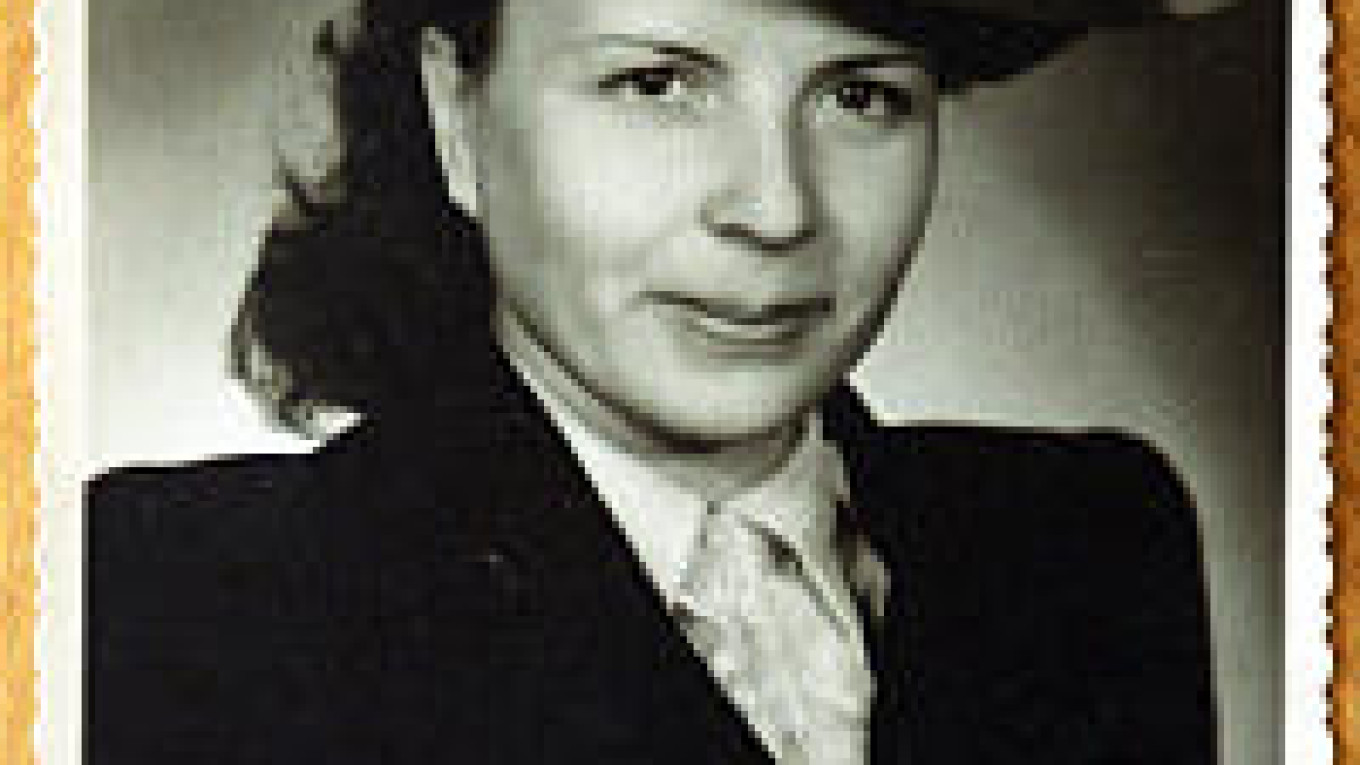Foreign and Russian World War II veterans and a woman who worked at the alleged brothel, however, say the idea is nothing short of fiction.
Uchitel, using a script written by director Alexander Rogozhkin ("The Peculiarities of National Hunting," "The Peculiarities of National Fishing") is piecing together a film set in 1943 at the Murmansk International Club, one of three clubs in northern ports that the Soviets opened for foreign sailors to rest up in after delivering military and food aid over the stormy Barents Sea.
Uchitel said he locked on to the idea of making the film after reading that the Soviet government had selected young women -- Komsomol members -- and set them up to work as prostitutes at the Murmansk International Club for sailors from the United States, Britain, Canada and other countries that sailed into Murmansk carrying the Lend Lease aid.
He said the club even picked up a nickname, the Churchill Brothel, which is also the working title for the film.
Maria Vologdina, who worked as an accountant at the Murmansk International Club from 1942-45, stoutly denied that the club had operated as a brothel, calling the suggestion "disgraceful."
"It's such a shame that Russians want to lie about themselves, even if it's for the sake of an exciting movie," said Vologdina, 84.
"I'm not denying that many foreign sailors paid a lot of attention to us. They brought us chocolate and other food, cigarettes and invited us to dance. They asked us out on dates, and we invited them to our homes sometimes. But there was no brothel in the club.
"For me, I can even give you my word that I never even allowed any of those admirers to kiss me," Vologdina said.
The international clubs were organized in Murmansk, Arkhangelsk, and Severodvinsk (then called Molotov) in 1942 and 1943, under the auspices of the All-Russia Society for Cultural Contacts with Foreign Countries.
The clubs had a movie hall seating 30 to 40 people, and these halls were also used for dances, parties and theater performances.
They also had cafes serving better food than could be purchased in most places at the time. When dances were held, the clubs would invite young women working in the cities.
One British World War II veteran said that portraying the clubs as brothels is not only unfair but possible cause for a lawsuit.
"I can swear on my grandchildren's lives that there was no brothel in the Murmansk Inter Club," Terry Gilligan, who lived in Murmansk from 1943-44, said in a telephone interview from England.
"I'm very angry about this film's idea and, I tell you, if this man still makes the movie the way he wants, I'll have to talk to my solicitor."
Gilligan said he went to the club almost every day during the year he spent in Murmansk.
"There was no other place to go to," he said.
Eddie Grenfell, a former British Navy officer who served in the northern convoys, said sailors had several places to frequent in their free time, but romance was strictly kept off-limits.
"I also remember that when visiting another spot, the Red Army Officers Mess near Murmansk, we were allowed to dance with Russian girls but not to develop friendships," he said.
"Russian officers really watched us, so that we wouldn't do anything wrong. The girls whom we met there were often even afraid to talk to us," he said.
The nervousness of the young women was justified, according to Vologdina, as a number of those who did form relationships with foreign sailors were taken away, often to penal camps, after the war.
Israel Levinson, a former pilot in the Soviet Navy, said the women were not only acting out of fear.
"One has to understand that the customs of the Soviet Union were very strict during those times," Levinson said.
Olga Golubtsova, a journalist from Severodvinsk who has been investigating the facts behind the story, said that she has not found any proof of a brothel.
For his part, Uchitel maintained that his script is based on fact.
"The basis of the film is a true story," he said in a telephone interview. "You have to understand that many details came from the screenwriter's mind because it is not a documentary. But I know that institutions like this really existed. Because of this, I do believe the screenwriter."
Uchitel acknowledged that he had seen no documents from the period or found any witnesses confirming the brothel's existence.
But he added: "My father worked as a camera operator all through the 900 days of the Leningrad blockade, and I only want to show the truth in my films."
A Message from The Moscow Times:
Dear readers,
We are facing unprecedented challenges. Russia's Prosecutor General's Office has designated The Moscow Times as an "undesirable" organization, criminalizing our work and putting our staff at risk of prosecution. This follows our earlier unjust labeling as a "foreign agent."
These actions are direct attempts to silence independent journalism in Russia. The authorities claim our work "discredits the decisions of the Russian leadership." We see things differently: we strive to provide accurate, unbiased reporting on Russia.
We, the journalists of The Moscow Times, refuse to be silenced. But to continue our work, we need your help.
Your support, no matter how small, makes a world of difference. If you can, please support us monthly starting from just $2. It's quick to set up, and every contribution makes a significant impact.
By supporting The Moscow Times, you're defending open, independent journalism in the face of repression. Thank you for standing with us.
Remind me later.


